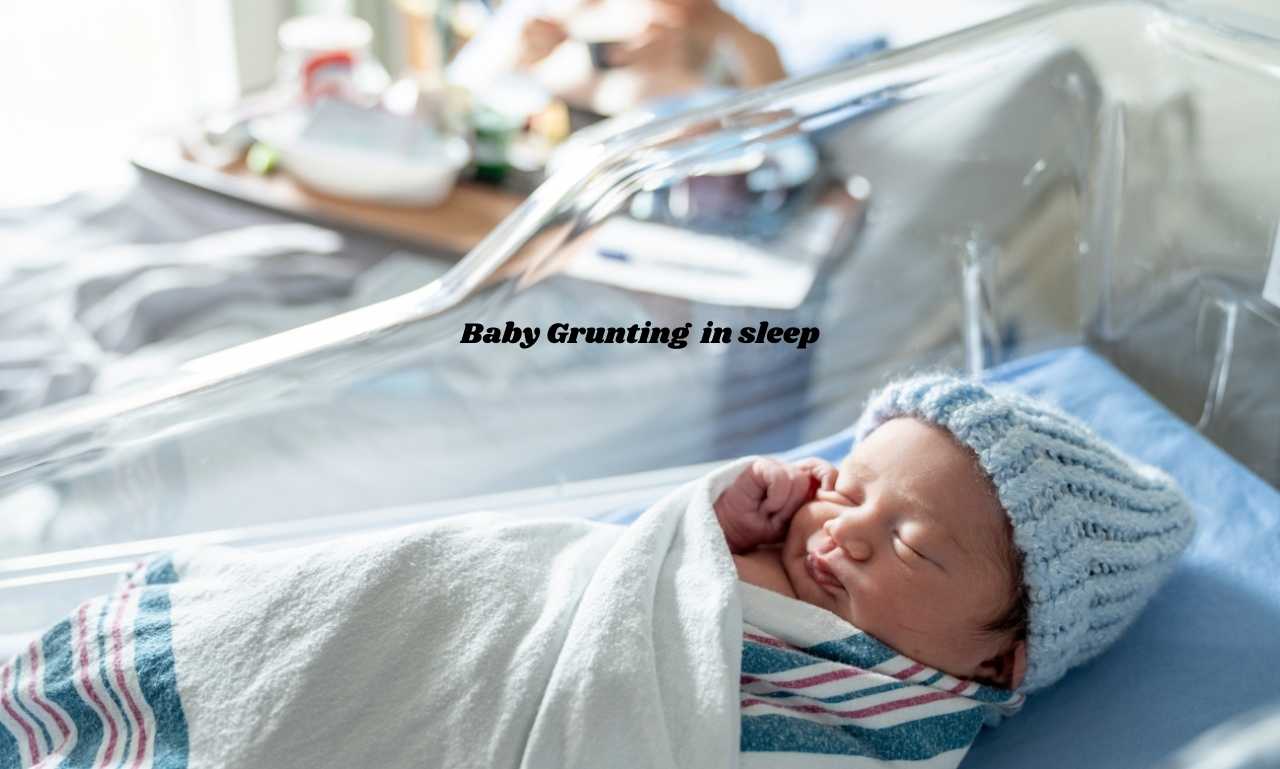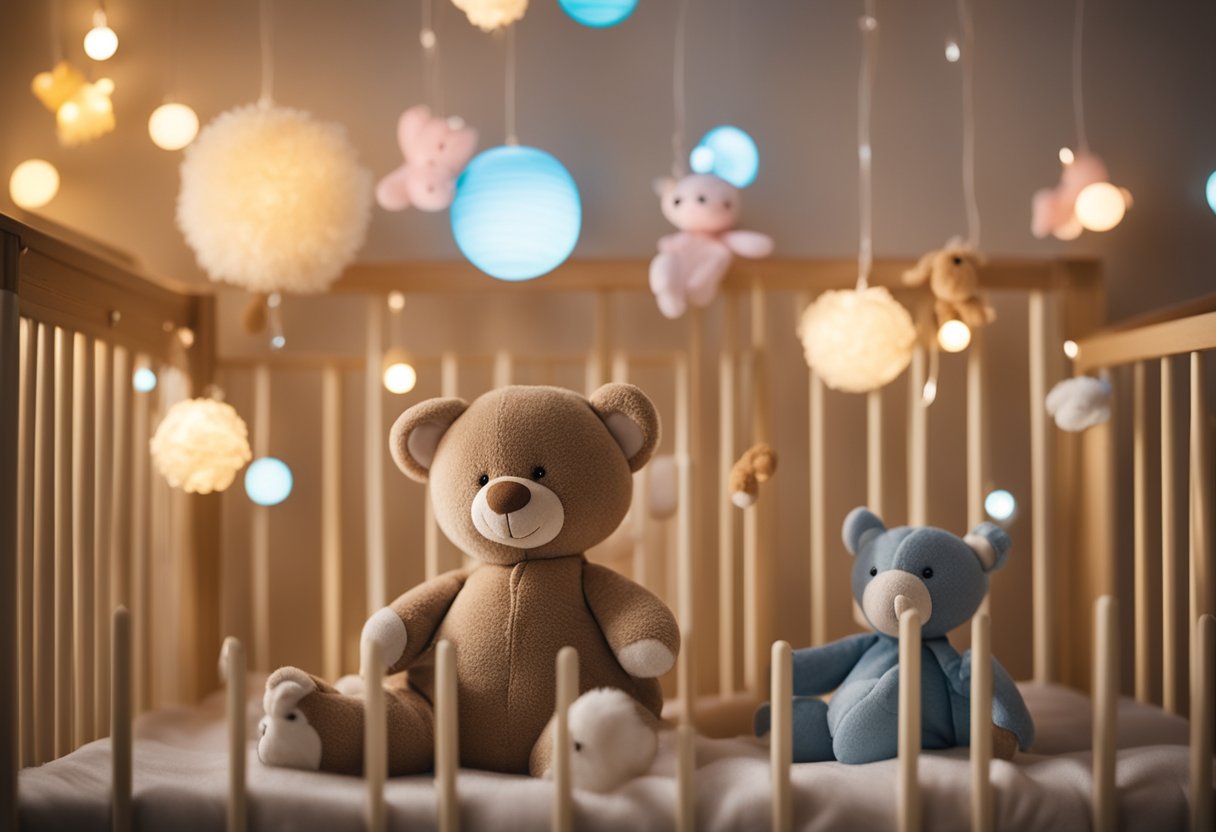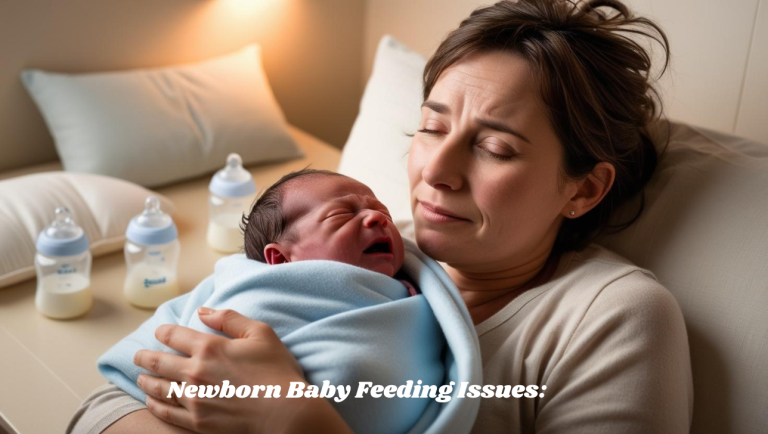Baby Grunting in Sleep: Understanding This Common Behavior

When your baby is grunting in sleep, you frown with the concern. You may wonder if these noises indicate discomfort or a deeper issue. Most baby sleep sounds, including grunts, snorts, and gurgles, are normal and not usually a cause for concern. These sounds often relate to their developing bodies adjusting to life outside the womb.
Newborns often grunt due to their digestive systems getting used to processing food. This adjustment can lead to minor discomforts, like gas, which may cause these noises. During sleep, babies experience shorter sleep cycles, leading them to make various noises. You should only worry if you notice that your baby grunts after each breath or shows other signs of distress.
Babies also grunt during light sleep phases or while transitioning between sleep stages, which is part of their normal sleep cycle. Knowing what sounds are typical can ease your mind and help you understand your baby’s needs better. For more insights into this topic, learn about the common causes of baby sleep noises.

Understanding why your baby grunts during sleep is crucial for new parents. This blog post offers insights into the potential causes and implications of baby grunting, helping you navigate this common parenting concern with confidence and ease.
Why is my Baby Grunting In Sleep
Grunting in sleep is often heard in the early months of a baby’s life. It can be attributed to the natural development of their respiratory system. Infants have smaller airways and less developed muscle tone, which can lead to grunting sounds.
This is typically normal and not a cause for concern. Occasionally, grunting may be a sign of a specific condition known as Grunting Baby Syndrome, which involves difficulty coordinating the muscles required for bowel movements.
In many cases, grunting is just one of many noises your baby might make while sleeping. Newborns often produce various sounds, including hiccupping, snoring, and moaning.
These are common as your baby adjusts to the external environment. If the grunting accompanies signs of distress or unusually frequent, it’s advisable to consult a pediatrician to rule out any underlying issues. Understanding these factors helps in managing and addressing parental worries effectively.
When caring for a newborn, it’s common to notice various sleep sounds, including grunting. Understanding these noises is vital for reassuring parents about their baby’s well-being.
You’ll learn about NREM sleep in infants, a phase where these sounds often occur. In this stage, babies experience deep sleep cycles that are crucial for development.
Key Points to Explore
- Causes of Grunting: Discover why babies grunt in their sleep, focusing on factors such as developing respiratory systems and muscle tone.
- Normal vs. Worrisome Sounds: Differentiate between typical sleep grunts and noises that might signal issues. In most cases, noises like infant sleep noises are normal.
Practical Information for Parents
- Sleep Environment: Ensure your baby has a safe and comfortable sleeping space. Adjust lighting, room temperature, and bedding to promote better sleep.
- Seeking Medical Advice: Recognize when to consult a healthcare professional, especially if grunting is accompanied by other symptoms, which might indicate underlying conditions.
By understanding these aspects, you’re better equipped to manage and interpret your baby’s sleep behavior.
To ensure better sleep for your baby, consider creating a calm sleep environment. This involves following safe sleep guidelines and addressing potential sleep disruptions which could include grunting or other sounds.

Grunting in Newborns
Newborn grunting can often be attributed to an immature digestive system, as babies are still learning to move gas and stool. It’s also linked to newborn congestion which can cause sounds during sleep. Finding the right sleeping position can alleviate these noises and improve overall comfort.
Developmental and Medical Factors
Some infant sleep noises are related to the startle reflex or periodic breathing. These are typical developmental aspects that most babies outgrow. Keep an eye on any signs of respiratory distress as it may indicate conditions like laryngomalacia. A study from the University of Utah suggests that grunting respirations can indicate respiratory issues in rare cases.
Breathing Patterns and Issues
Transient rapid breathing is another common experience among infants. Their breathing patterns may include irregular episodes. If you’re concerned about conditions like respiratory syncytial virus or bronchiolitis, monitor any persistent or severe symptoms. Intervention is often necessary when these conditions are present.
Feeding and Digestive Considerations
Sometimes, grunting may result from gastroesophageal reflux (GER), where stomach contents re-enter the esophagus. While GER is often harmless, it can cause discomfort. Ensuring the infant is well-burped after feeding can help reduce symptoms.
Nervous System and Sleep
The immature nervous system of a baby can lead to unexpected movements or sounds during sleep. Over time, as your baby’s nervous system matures, these noises generally decrease. It’s essential to distinguish normal sounds from potential indicators of issues like respiratory distress syndrome.
Environmental Factors
Optimizing the sleep environment, such as maintaining an appropriate room temperature, can reduce discomfort and grunting. Keeping the room around 68-72 degrees Fahrenheit (20-22 degrees Celsius) can help. Adjusting humidity levels can also assist in alleviating nasal congestion, which is a common cause of sleep disturbances in infants.
Use saline drops to liquidate the thickness of the mucous. You can clean gently or use a bulb sucker to clean the nostrils.
Frequently Asked Questions
Understanding why your baby grunts during sleep can help in creating a calm sleep environment. Awareness of typical patterns and concerns allows you to offer better support and tips for parents navigating these common experiences.
Why does my newborn grunt and squirm during sleep?
Newborns often grunt and squirm while sleeping because they are adjusting to having bowel movements. Their bodies are learning to coordinate abdominal muscles, which can lead to these sounds and movements. Learn more here.
Is it normal for my 6-week-old to grunt and strain throughout the night?
Yes, it is common for 6-week-old babies to grunt and strain at night. Their digestive systems are still developing, causing them to make these sounds without any health concerns. Further information can offer reassurance.
What causes grunting baby syndrome to intensify at night?
Grunting baby syndrome can become more pronounced at night due to transitions between sleep cycles. Babies naturally move through multiple cycles, making noises as they shift between them. This is a typical aspect of infant sleep. Consider reading more here.
At what point should I be concerned about my baby’s grunting sounds during sleep?
You should be concerned if your baby’s grunting is accompanied by other symptoms like a high fever, difficulty breathing, or if they seem in distress. In such cases, consulting a pediatrician is advisable.
What can be the reason for a 4-month-old baby grunting in sleep?
A 4-month-old baby might grunt due to light sleep patterns or change in feeding routines, which can cause temporary digestive discomfort. As they become more active, muscle coordination improves, reducing such occurrences.
How should I handle my 6-month-old baby grunting for hours in their sleep?
For a 6-month-old grunting for hours, ensure a calm sleep environment by maintaining a consistent bedtime routine. If grunting continues, evaluate their diet or any possible allergies. Consulting a doctor can provide additional guidance if needed.



